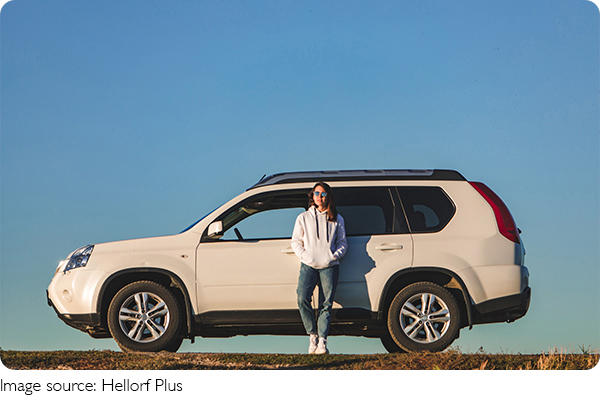Why Drivers Ditch Sedans

There's a curious moment happening in suburban driveways and city parking apps across the world—people are choosing cars not by price alone, but by how they live.
Have you ever noticed how sedans are becoming rarer, while SUVs and ride-share icons are popping up everywhere? What's driving these choices isn't just new tech or trends. It's a shift in lifestyle, economics, and values.
SUVs Take Over: The Psychology of Bigger Choices
Let's start with the SUV boom. Sedans, once the most common vehicle on the road, are quietly being edged out. In the U.S. market alone, SUVs and trucks now account for nearly 80% of new vehicle sales. Why?
Perception of Safety: Many consumers feel safer in a larger vehicle, even if crash test data doesn't always support that assumption. The height of SUVs provides better road visibility, giving drivers a sense of control.
Lifestyle Flexibility: An SUV adapts—grocery runs, camping trips, or carpooling with five kids and a dog. It speaks to families and adventurers alike.
Weather and Terrain: For people living in areas with snow, gravel, or rural roads, all-wheel drive isn't just a feature—it's peace of mind.
Interestingly, the design of SUVs has evolved too. They're no longer bulky gas-guzzlers. Many crossover models now combine the efficiency of a sedan with the feel of a sport utility vehicle, making them an attractive hybrid solution.
The Rise of Electric: It's About More Than the Planet
You've likely seen the surge in electric vehicle (EV) conversations—and purchases. But it's not just eco-consciousness that's winning over consumers.
Long-Term Cost Savings: While the upfront cost is still higher in many cases, EVs promise lower maintenance costs (no oil changes or engine issues) and significantly cheaper fueling. A 2023 Consumer Reports analysis found EV drivers saved $6,000–$10,000 over the lifetime of the car compared to gas-powered vehicles.
Urban Incentives: In many cities, EVs come with perks—priority lanes, free parking, tax credits, or even exemption from congestion charges.
Tech Appeal: Today's EVs often come with sleek dashboards, self-driving features, and constantly updating software—features that appeal to tech-forward buyers, especially younger generations.
Sharing Over Owning: A Generation Rethinks Car Needs
Younger are increasingly questioning whether they need to own a car at all—especially those living in cities.
Economic Flexibility: Car ownership comes with hidden costs—insurance, repairs, parking, depreciation. Services like Zipcar, Turo, or even short-term rentals offer access without commitment.
Environmental Impact: For those who drive less than once or twice a week, car sharing aligns better with sustainability goals. Why own a depreciating asset that sits idle 90% of the time?
App Culture: Today's users want everything on demand—rides, food, entertainment. Car sharing fits right into that mindset, with easy booking, digital keys, and no paperwork.
How Preferences Shifted: A Timeline of Change
To understand today's market, it helps to look at where we came from:
• 1990s: Sedans were king. Owning a car was a major milestone.
• 2000s: SUVs grew popular, but faced backlash for fuel inefficiency.
• 2010s: Rise of compact crossovers and early hybrids. Tech and sustainability entered the conversation.
• 2020s: EV boom, the fall of sedans, rise of car subscriptions, and urban mobility solutions.
These shifts aren't just about what's available—they're about what people value. Flexibility, sustainability, cost control, and convenience now play a larger role than brand loyalty or tradition.
What This Means If You're in the Market
If you're planning your next vehicle purchase—or wondering if you even need to make one—ask yourself:
1. How often do you drive?
2. Do you value tech and sustainability?
3. Are upfront costs more important than lifetime savings?
4. Do you prioritize convenience or control?
Your answers might explain why EV ads keep following you, or why your neighbors are leasing a hybrid SUV instead of buying a full-size sedan.
Driving into the Future
Consumer preferences are fluid, but the patterns are clear: people want cars that fit their lives, not just their budgets. Whether it's the practicality of an SUV, the tech thrill of an EV, or the freedom of using a shared fleet, the modern driver is rethinking what it means to "own" a car.

Next time you spot a friend trading in their car—or ditching it entirely—don't just ask what they got. Ask why. That answer might just reflect the future of driving.

 · Automobile team
· Automobile team